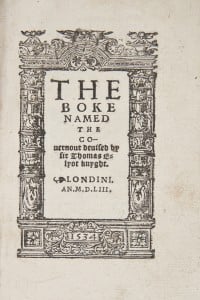
I have a weakness for ambitious failed projects and have just finished reading a particularly interesting example. Richard Hughes (1900-1976) was already a successful author in a variety of genres when he decided to write a series of novels illustrating the moral and political crisis of Europe and Western civilization between the two World Wars. Conceived as a trilogy, The Human Predicament fell short of his grand plans. Hughes gained great critical acclaim for the first volume, The Fox in the Attic (1961), rather less effusive praise for The Wooden Shepherdess (1973), and died soon thereafter, leaving behind parts of an untitled final volume.
Even in truncated form, the novels fascinate, tracing the lives of an English aristocrat, Augustine Penry-Herbert, and his relatives in Britain and Germany between 1923 and 1936. Hughes underwent a conversion experience while writing these novels, and they reflect his fascination with the power of religious belief. His characters wrestle with the relationship between the world as it is and the world as they believe it should be.
Hughes’ descriptions of the family of Augustine’s brother-in-law, an aristocratic MP serving a Liberal Party in its death throes, are sharp, as he shows the insufficiency of a particularly haughty, English sort of atheism and materialism. On the other hand, the story of Augustine’s beautiful, blind German cousin Mitzi, a Carmelite nun, offers emotionally powerful insights into the challenges and consolations of faith.
The family’s German connections are especially interesting, as they allow Hughes to trace the complex origins of Nazism. Augustine’s Bavarian cousins are Catholic aristocrats frustrated with the Weimar Republic but ambivalent about Hitler, which reveals sparkling insights about the appeal of mass movements against parliamentarism and how conservative resistance to revolution can crumble. Hughes inserts himself into Hitler’s head at key moments, offering controversial psychoanalysis of the Führer’s personal motivations as well as his appeal to his followers.
Although Hughes did not complete the trilogy, his work retains real power, especially in our current period of political and cultural upheaval.
—Ronald J. Granieri

Sir Thomas Elyot’s Boke Named the Gouernour (“Governor”), first published in 1531, was influential on readers from Shakespeare to James II. It is a “courtesy book,” a combination of philosophy primer and manual of leadership, in which Sir Thomas endeavours to bring Renaissance humanism to an English audience of “governors.” It teaches Tudor ideas about duties, manners, and virtues, and it evokes excellently the author’s England, with Plantagenet rule still in living memory, full of new intellectual undercurrents, often derived from Greek and Roman authors, and with the Reformation looming.
Elyot was himself part of the “governor” class, and became Clerk of the Privy Council. He knew the scholar Thomas Linacre, the painter Holbein the Younger, Sir Thomas More, and perhaps the theologians John Colet and Erasmus. His Gouernour so impressed Henry VIII that the king sent Elyot as ambassador to Charles V to get the Holy Roman Emperor’s assent to Henry’s divorce from Catherine of Aragon. (Predictably he failed, as Charles V was Catherine’s nephew).
Gouernour sets out a monarchical political theory, and gives advice on becoming an effective and virtuous ruler. Elyot acknowledged that “of no better clay … is a gentleman made than a carter, and of liberty of will as much is given of God to the poor herdsman as to the great and mighty emperor,” but felt the Bible ordained hierarchy under a single ruler for society’s “sundry estates.”
Elyot is grave and kindly, although his style is sometimes orotund and pompous, and some of his precepts seem almost humorous. He recommends princes be taught dancing in order that they learn control and grace in statecraft. He cites Philip of Macedon’s rebuke of Alexander the Great, for being able to sing too well, because “inordinate delight” in music could lead to “wantonness” and loss of gravity. He is however willing to tolerate some artistic bent, because knowing how to draw and paint could be useful for military map-making.
To Elyot, a lack of lawful governance means anarchy, when “the persons most strong in body should by violence constrain them that be of less strength and weaker to labour as bondsmen or slaves.” But rulers, given rights by custom or heredity, must constantly replenish their legitimacy by being always more principled, restrained, and wise than those they rule over, governing their own inclinations in order to better govern others. It seems ironic such a moralist served such a king.
—Derek Turner

Leave a Reply